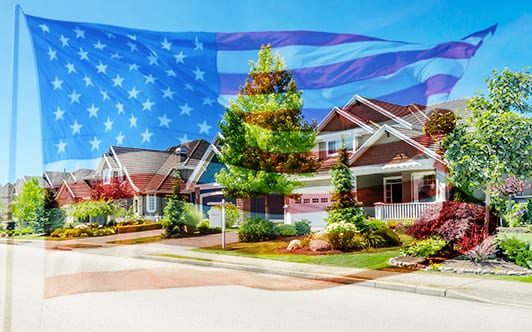
Getting ready to purchase a home is a huge financial undertaking. While you are probably aware of having to save up for a down payment, you might not know about closing cost fees. Don’t be taken by surprise at the closing table; here’s what you need to know about closing costs.
Closing costs are the fees charged for services performed during the home purchasing process that you will pay at closing. Closing is the final step of the loan process and is a meeting between you (the buyer), the seller, and closing officer (a lawyer or title/escrow company representative, depending on the state). You will review the legal documents provided in your loan package and execute all required documents. This step is extremely important, as it is the final confirmation of the loan terms as discussed with your lender.
The closing costs you might have to pay will vary based on the property, where you live, and the loan you choose. The following are a few of the most common fees you may see.
Again, closing costs will not be the same for everyone as they vary by region. On average, most homebuyers typically pay about 2 to 5 percent of the home purchase price. For example, if the home costs $250,000, you might pay between $5,000 and $12,500 in closing fees.
It is likely you might be able to avoid some closing cost, but not all. Here a few ways to save on closing costs.
Your lender will provide you with an estimate of what closing costs will be at the beginning of your application process, which will allow you the chance to shop around to find the best lender and deal for you. After finding a lender and going through the loan process, you will receive a closing disclosure, or the final closing cost total, at least 3 business days prior to closing. This is your time to make sure everything looks right and if you have questions or find a mistake, you have time to contact your lender. If you’re worried about how much you’ll pay in closing costs, there’s plenty of options for you! NFM participates in most state bond programs that provide closing cost assistance.
To learn more about closing costs or bond programs, contact one of our licensed Mortgage Loan Originators. If you are ready to begin the home buying process, click here to get started!
While buying a home might seem straightforward, there’s a lot more to the process than picking out a home and obtaining a mortgage. One of the things most buyers don’t prepare for is all the hidden costs of buying a home, both during the homebuying process and after.

Some of these costs occur during the homebuying process, otherwise known as closing costs:
Down Payment/Earnest Money: Your down payment is a certain percentage of the home’s purchase price, ranging from 0-20%. Earnest money is essentially a security deposit that shows your intent to buy the home. This money is later applied to your down payment when you purchase the home. For example: if the home you want to buy is listed at $250,000, you can expect to have a down payment between $8,750 (3.5%) and $50,000 (20%).
Appraisal Fee: An appraisal is a written analysis of a property’s estimated value, prepared by a qualified appraiser. On average, the fee for an appraisal ranges from $250 to $400. This price is dependent on the size of the home you are looking to buy and where you live, so it could be more or less than average.
Title Services: When you buy a home, the seller must transfer their legal ownership or “title”, over to you in the form of a deed. Your lender requires you to have a complete title search and insurance to protect you in the instance that the seller or previous owners didn’t have complete ownership of the home. This fee is a bit higher than other closing costs, averaging around $1,000, but it is a vital aspect to protecting yourself from potential issues in the future.

Lender’s Origination Fee: When working with a mortgage lender, they charge an upfront fee to process your loan application. This fee is usually a percentage of the total loan you obtain, also known as “points”. One point is equal to 1% of the loan amount. For example, on a $250,000 loan, a 1% origination fee or one point is equal to $2,500.
Home Inspection: It is crucial to have a home inspected before you proceed to purchase. Professional home inspectors are trained to see things that normal eyes might overlook. You don’t want to buy a home with foundation problems, bad roofing, or pests. The cost for a professional home inspection is between $300 and $500, depending on the size of the home.
Property Taxes: As a homeowner, you typically pay property tax twice a year. In most cases, the sale of a home will fall within one of the tax periods. This means that at closing, the buyer will reimburse the seller for the property taxes they’ve already paid for the tax period. Since you are only paying a portion of the taxes, the total cost depends on both the value of the home and how far into the pay period you are buying the home.
After you purchase your new home, you should plan to pay for these expenses:

Moving: There are a lot of aspects of moving to consider when trying to estimate what it will cost. Are you moving down the street, across the state, or across the country? Obviously, the further the distance, the more you will pay for movers or to rent a moving van/truck. Moving yourself is a cheap alternative to hiring professionals. The size of the home and the weight of items also impact the cost. You’ll need to purchase packing supplies, including boxes, containers, tape, and bubble wrap. The time of your move also comes into play, as moving in the summer is busy season and usually has the highest rates. Expect to spend anywhere between $1,200 and $5,000 to move.
Utilities: If you’ve owned a home before then you’ve experienced paying for your own utilities. For first-time homebuyers, some of these costs were probably covered if you were renting. Utilities you’ll have to pay include: water, sewer, gas, cable, internet, electric, trash/recycling, and phone. A few of these costs are dependent on the seasons (electric), while others can be impacted by the number of people living in your home (water). Plan to pay about $300 to $600 a month in utilities when setting a budget. You can easily adjust this amount once you’ve had a couple months to find your own average.

Maintenance/Renovations: While your new home might have been in great condition when you purchased it, it’s your responsibility to keep up with maintaining the home and yard. If you’ve never had to maintain a yard, you might need to purchase some tools, such as a lawn mower, rake, shovels, shears, or leaf/snow blower. If you prefer to hire professionals to maintain your landscape, be sure to add that into your budget. Set aside some money for a renovation budget as well, as you might choose to repaint the living room or redo the kitchen a year or two down the line.
Homeowner’s Association (HOA): If the home you purchased is part of a HOA, you’re going to have an additional monthly cost of, on average, $200 to $400. The more upscale the community/amenities, the higher the fee. Every HOA has different requirements and standards, so do your research before choosing to join.
Becoming a homeowner is a milestone achievement, so make sure you are fully prepared for the financial commitment. Now that you know what hidden costs to expect when buying a home, you should feel confident about your budget and moving forward in the homebuying process.
If you have any questions or want more information about the homebuying process, contact one of our licensed Mortgage Loan Originators. If you are ready to begin the process, click here to get started!

A Veterans Affairs (VA) loan allows you to buy your home with 100% financing or no down payment. However, there still will be other costs associated with the loan. You most likely still will need an earnest money deposit and closing costs to cover. You may be able to get the seller to cover some of the closing costs during settlement, up to 4% for a VA loan. When buying a home using VA financing, closing costs cannot be rolled into the loan. There are some costs that can be financed such as the VA funding fee.
For first-time home buyers, the VA funding fee ranges from 2.15% to 2.4% of the purchase price. If you are receiving any form of disability from Veterans Affairs, then the funding fee may be waived. The funding fee is based on various loan characteristics. On an Interest Rate Reduction Refinance Loan, an appraisal is not required, but the lender may require a drive-by-appraisal. Income documentation is not required, but source of income must be verified. On a purchase loan, the sales price cannot exceed the appraised value.
In general, when buying a home using 100% VA financing, the closing costs can range from 3.5% to 5.5% of the purchase price of the home. Closing cost can range from loan origination fees from the lender, credit report cost, appraisal, recordation cost, title fees, and transfer taxes, to name a few. If the 4% in closing cost assistance from the seller doesn’t cover these costs, then the remaining difference is the responsibility of the buyer. Also note, as a new home owner you will want to have some savings available after settlement in case of an emergency, and to pay for any added expenses once you move in, such as moving and purchasing curtains, lawnmowers, appliances, etc.
If you are ready to purchase a home with your VA benefits, keep in mind that there is a difference between down payment and closing cost.
Enjoy your home search and good luck!
Bruce Dorsey is employed by NFM, Inc. as a Mortgage Loan Originator, NMLS #174898. NFM, Inc. is a Veterans Affairs Automatic Lender (659985-00-00) under the trade name NFM Lending. NFM, Inc. is licensed as: Maryland Mortgage Lender (5330) under the trade name NFM Lending. For NFM lending’s complete licensing information, please go to www.nfmlending.com/licensing. NFM, Inc.’s Nationwide Mortgage Licensing System (NMLS) Company Identifier Number is 2893. NFM, Inc. is not affiliated with, or an agent or division of, a governmental agency or a depository institution. NFM, Inc. is an equal housing lender.